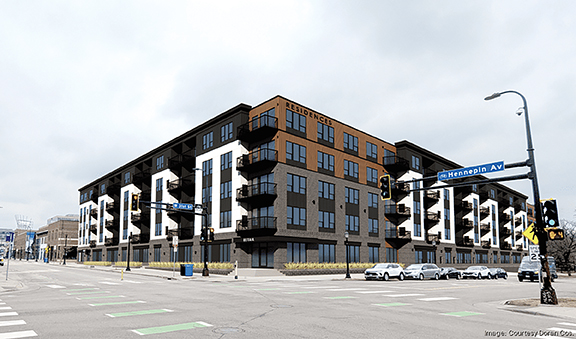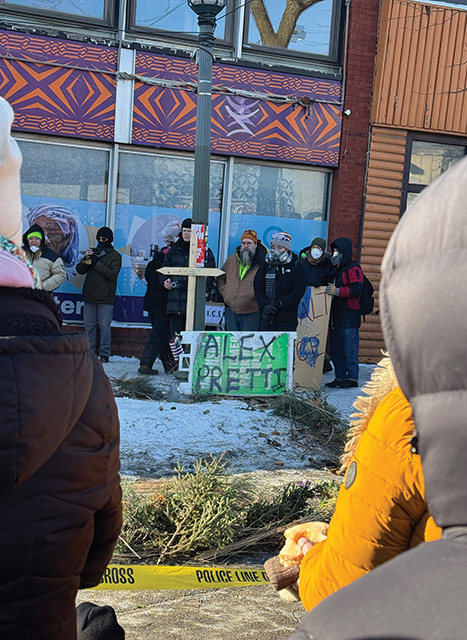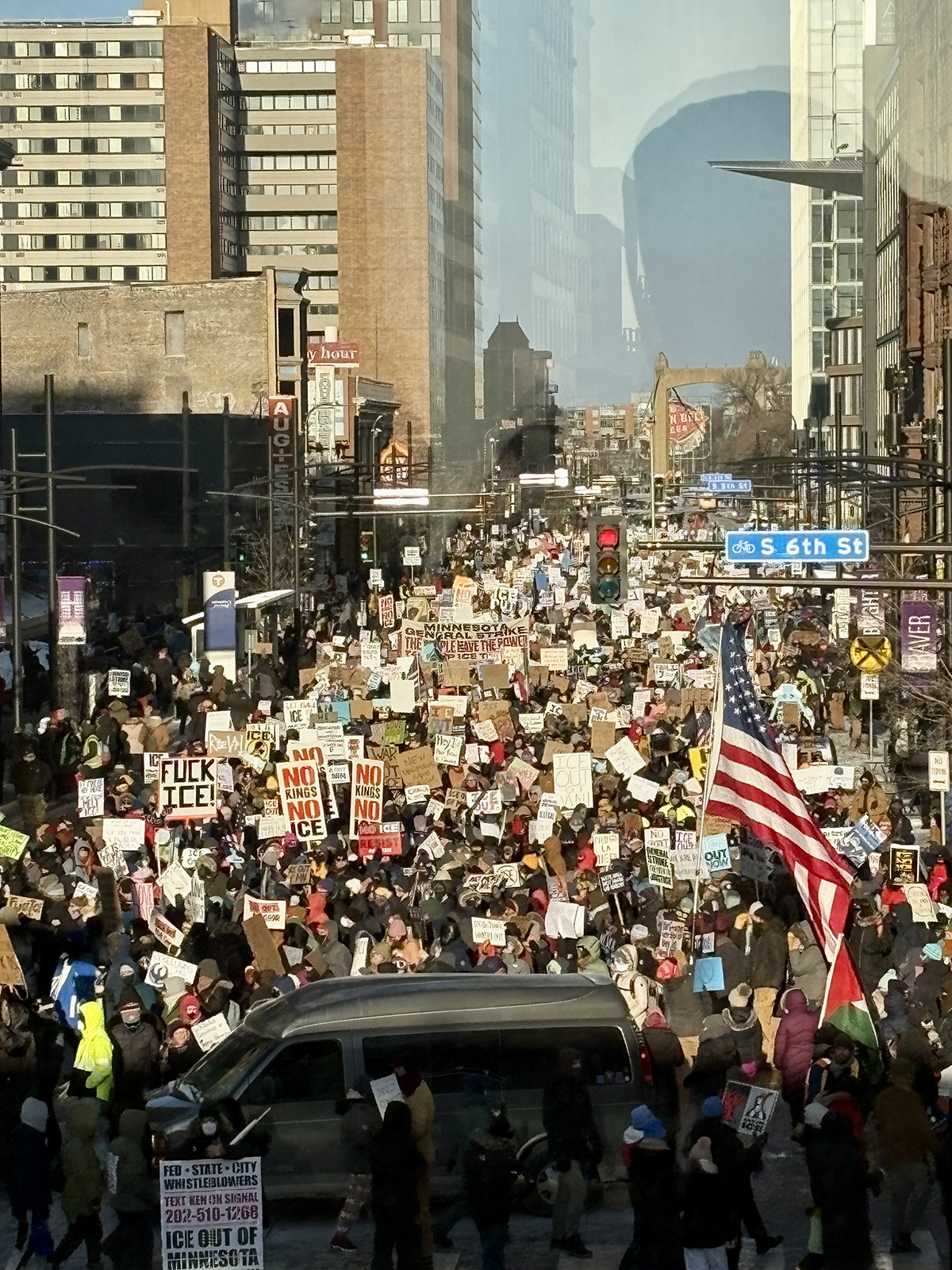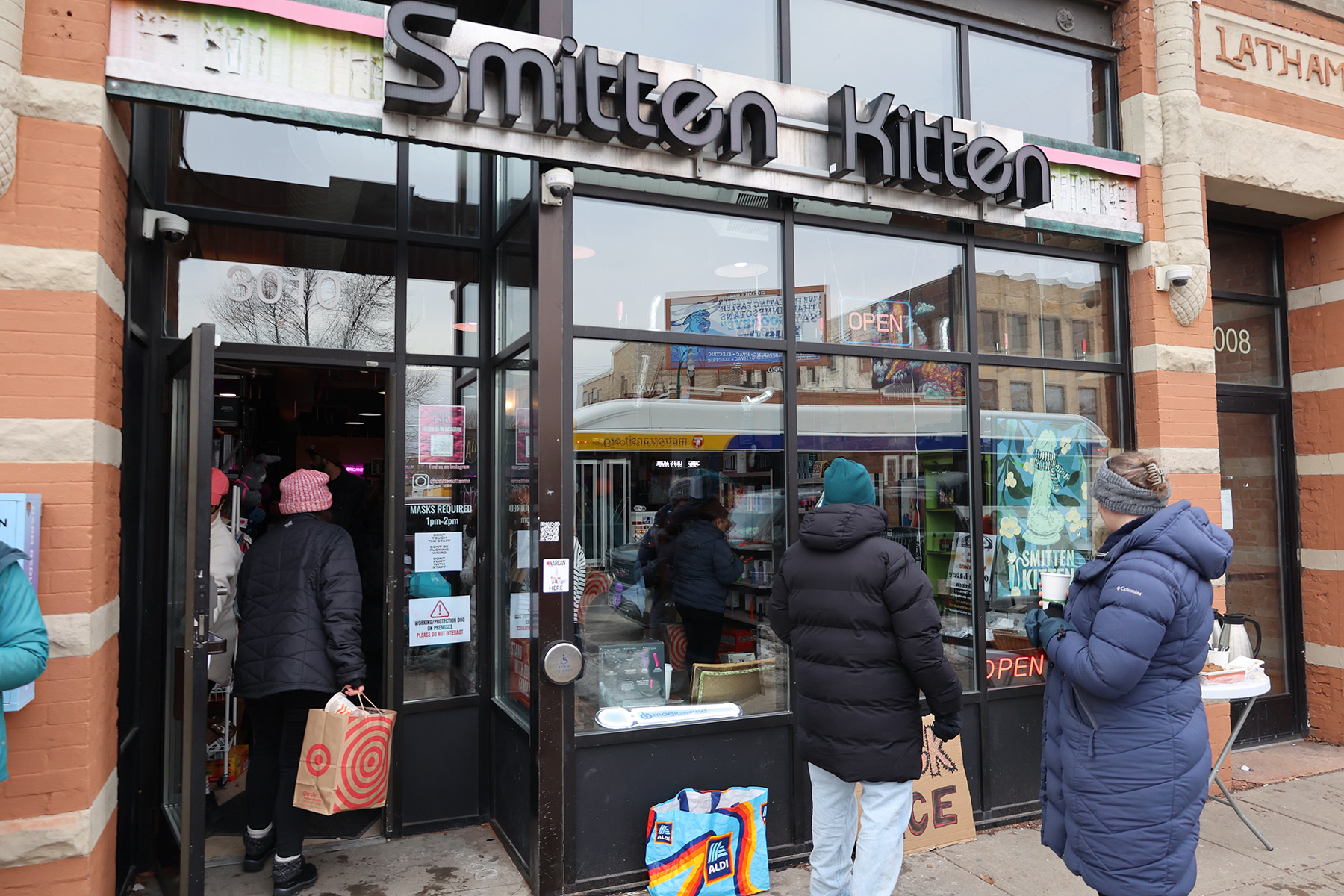Craig Wilson is the editor of the Hill & Lake Press. He lives in Lowry Hill.
The future of one of Uptown Minneapolis’ most visible corners came into focus this summer when the Minneapolis Planning Commission approved Doran Companies’ redevelopment plan for part of the Seven Points site at Hennepin Avenue and 31st Street. The 228-unit apartment building, which would replace the former CB2 and Kitchen Window spaces, also withstood an appeal at City Hall, allowing the project to move ahead into detailed planning.
Planning Commission Approval
On July 21, the commission voted to amend the existing planned unit development for Seven Points. The decision authorizes Bloomington-based Doran to demolish the structure and replace it with housing. City planning staff recommended approval with standard conditions, including updated landscaping plans and submission of an inclusionary zoning compliance plan before permits are issued.
Roughly 20% of the apartments will be reserved for households earning up to 50% of area median income, consistent with Minneapolis’ inclusionary zoning requirements.
Retail Debate
The most hotly contested element of the project is what it leaves out: ground-floor retail. For decades, Uptown’s identity has been tied to storefronts, nightlife and the hum of activity around Lake and Hennepin. Critics argue that replacing street-level shops with utility rooms, bike storage and a fitness center creates a “dead zone” along the avenue.
Molly Reichert, a Southwest Minneapolis resident and architecture professor, filed an appeal arguing that the design violates zoning rules requiring retail along Hennepin. “Ground-floor retail is what creates lively, livable cities,” she told city leaders, citing her research in both Minneapolis and Barcelona. Others rallied behind Doran’s proposal, noting that Seven Points has struggled with high vacancies, especially in the wake of e-commerce, the pandemic and social unrest. Today, about 65% of the mall’s retail space sits empty, and LA Fitness — one of the last tenants to leave — closed in September. Supporters say bringing hundreds of new residents to the block is the surest way to stabilize Uptown’s future.
Doran CEO Anne Behrendt has emphasized that the ground-floor space is flexible and could be con- verted to retail if market conditions improve.

The Appeal
Opponents advanced their case to the City Council’s Business, Housing and Zoning Committee in mid-August. Some pointed to an alternative concept circulated by developer Michael Lander, who sketched a vision of small-scale shops along Hennepin and distributed it on postcards across the neighborhood. Supporters of the appeal said it better reflected Uptown’s character, while critics dismissed it as unfunded and aspirational.
On Aug. 13, the council committee unanimously denied the appeal, siding with planning staff who argued that the broader Seven Points development already met retail requirements. The vote preserved the commission’s approval, clearing Doran’s plan to move forward.
Conditions and Next Steps
Before construction begins, Doran must meet several conditions: finalize landscape planning, complete its inclusionary zoning plan and coordinate with public infrastructure projects in the area. The timing is significant, as the city is in the midst of reconstructing Hennepin Avenue South between 26th Street and Douglas Avenue, a multiyear overhaul that will reshape sidewalks, bike facilities and transit stations through fall 2025.
Behrendt told Axios that the project’s financing is lined up, meaning construction could begin “quickly” once permits are secured.
Community Impact
For residents and businesses, the Keystone Uptown project is both a promise and a gamble. Advocates believe new housing will draw more customers to Uptown’s shops and restaurants, spur transit ridership and improve street safety through higher foot traffic. Skeptics fear the loss of retail frontage, worry about a bland and suburban-style design and question whether Uptown’s eclectic character will survive another wave of change.
City staff frame the project in practical terms: more housing supply, affordable units, better pedestrian access and investment in a district that has seen too little in recent years. With approvals in place, the debate now shifts from “if” to “how soon.” Whatever its ultimate impact, the Seven Points block — once a retail anchor — is on its way to becoming a new residential hub at the crossroads of Hennepin Avenue and 31st.






